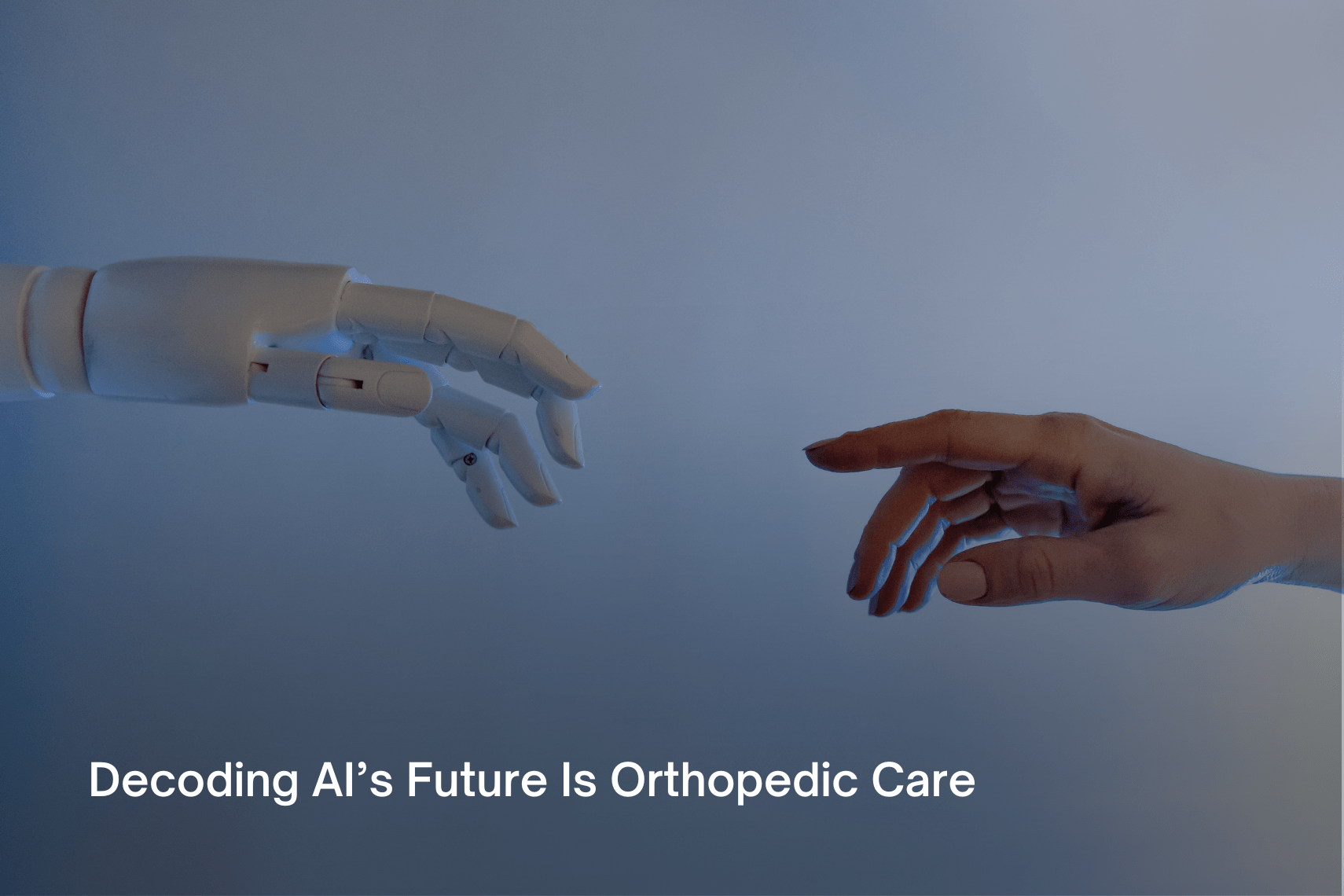
With physiotherapy and orthopedic care entering an era of massive technological changes, understanding its implication is of vital importance. And who better to review it than an orthopedic himself! In this version of Ashva interviewing healthcare practitioners, we have Dr.Vijayesh Tighare, a young and enthusiastic orthopedic resident at Indiana medical college and hospital, Mangalore, who’s committed to helping people live healthier, both mentally and physically.
How does AI change the playing field for orthos?
Having to deal with multiple patients in a single day is a huge strain for both the orthos and the clinic or hospital with respect to documentation. This is where AI comes in clutch. Automating patient Electronic Health Records (EHR) and even going as far as summarizing assessment schedule discussion, AI saves OPD (outpatient department) valuable time and on the long run resources.
While these are the immediate thoughts that came to Dr. Tighare’s mind, he later emphasizes on how AI can calculate risk factors, automate follow ups based on consultation schedules and even register feedback!
In conclusion, AI takes care of all the manual work and is always slowly making its way into genuine healthcare productivity.
How important is AI for orthos?
Other than the benefit laid out before, AI can and is already affecting the way surgeons approach surgery. From detailed surgery simulations to internal organ visualization and even using robots for surgery, AI has changed the way surgeons look at surgery.
Not only does AI seem capable of taking care of all low-end surgeries, its projectile is advancing rapidly towards a steady and reliable assistant to surgeons. While the adoption of robots in the orthopedic world is still low, Mr. Tighare believes there is credible work that can be done by AI and given the current hype and investment into the field, the day isn’t far where robotic surgeries would be the common norm in orthopedic care.
What does patient interaction look like for an orthopedic and his/her patient?
While we acknowledge the subjectivity of the experience depending on factors like locality, pricing and even clinic reputation, hearing about the problems on patient interaction and care was still nonetheless, revealing.
Dr. Tighare continued explaining the problems he faced in patient adherence – a significant hurdle that both sides need to cross if the patient aims at a quick recovery. He alludes to the problem that sometimes, there is just not enough motivation to keep going on with such elaborate treatment plans, especially when they may last as long as six months!
This is where tech steps in again – constant feedback, With prior treatment plans that focus on satisfaction by sensation, AI-powered equipment like Fitknees and Fitmust allow the calculation and documentation of various other mobility parameters that would otherwise either be never noted or tough to record. Frequent assessments with regular documentation of results is a great boon for patient satisfaction since they now understand that their recovery is not based on subjective feeling but comparative statistics!
This exponentially increases adherence since results serve as a great motivation for abiding by prescribed plans as small rewards along their rather long, tormented process.
Surgery and desired result – the crossroads?
Referring to the huge demand of surgeries irrespective of their cost and post-op complications, there is a huge difference between reality and expectations of patients and their relatives. Clearing the misconception that surgery is the optimal solution to every physiological problem is simply a bad call.
Dr. Tighare continues to bank on AI, believing that using AI in such instances can not only increase the chances of a successful surgery but also help both patients and surgeons make informed choices. This can be skilfully attained by making calculated predictions of success rate, potential complications and cost based on the number of input parameters sent by the doctors themselves. This however, would take time and monetary investment to be optimal and join standard practice.
SO WHAT NEXT?
While Dr. Tighare places a heavy bet on AI and smart equipment like Fitknees and Fitmust, it must be noted that we are still far away from an ideal technological setup that allows such constant and widespread use. Irrespective of the current standing, we can say without a shadow of doubt, that AI is here to revolutionize physiotherapy and orthopedic care – and Dr. Tighare is surely not the only one who sees it coming!
